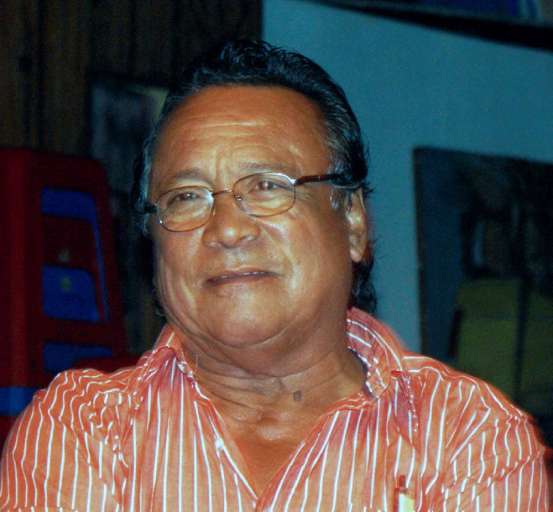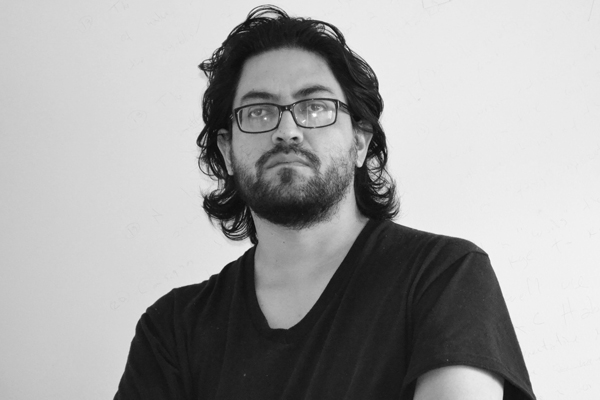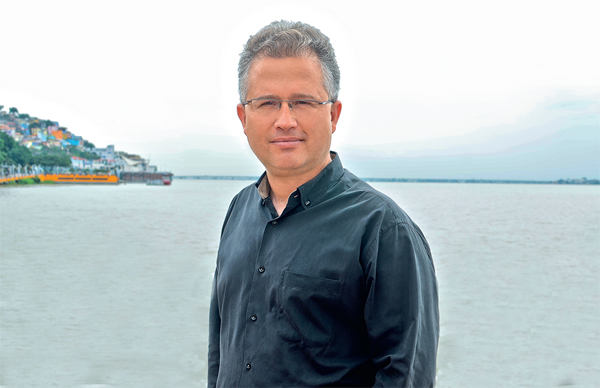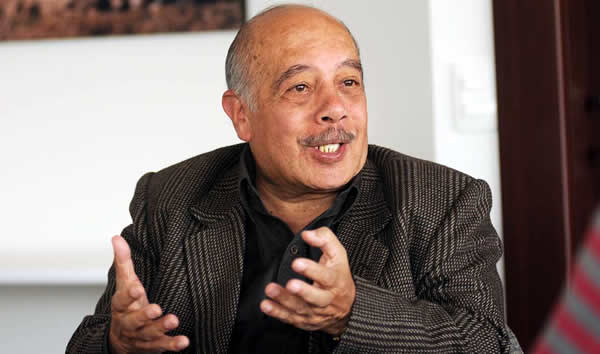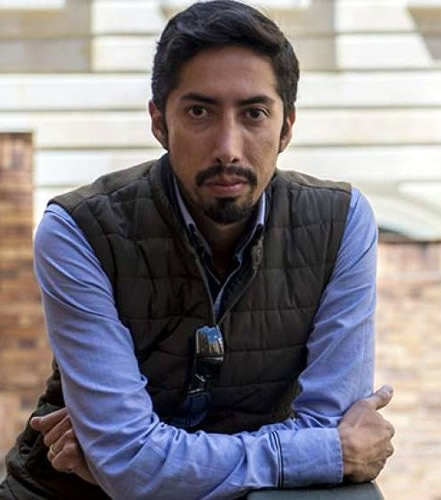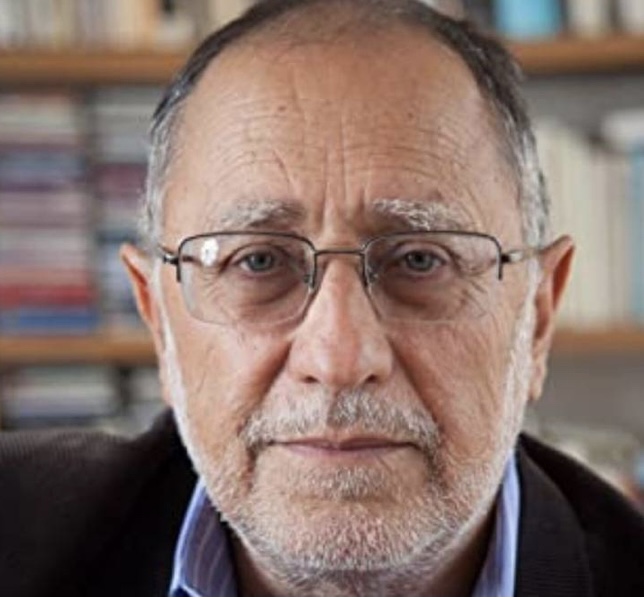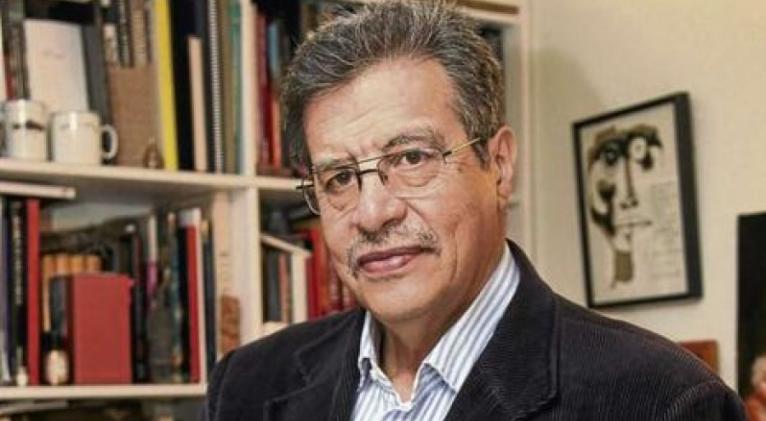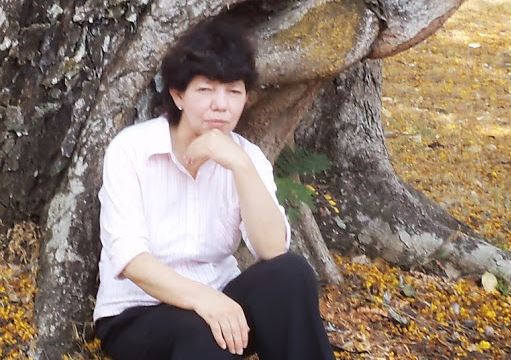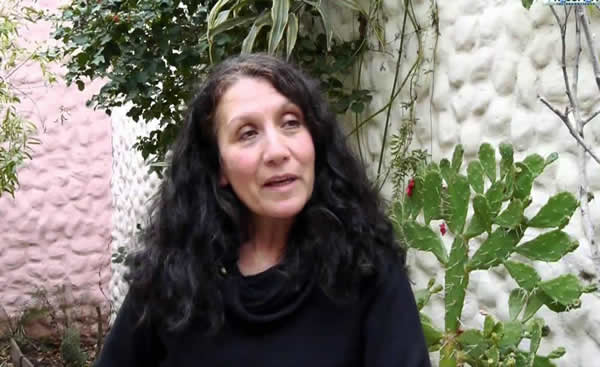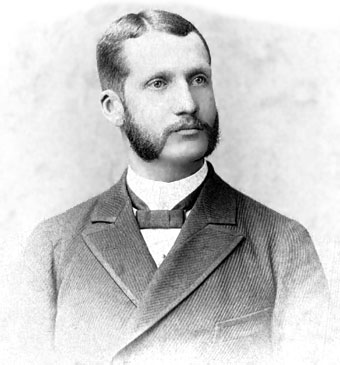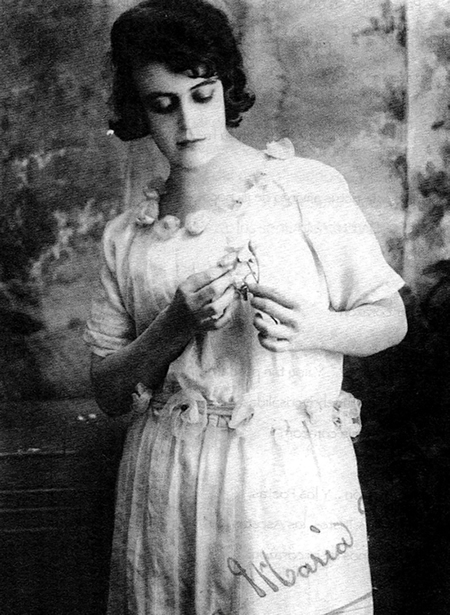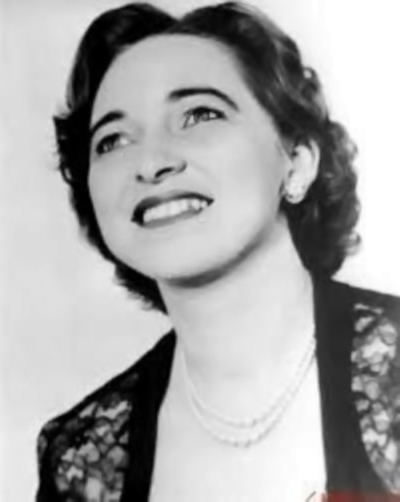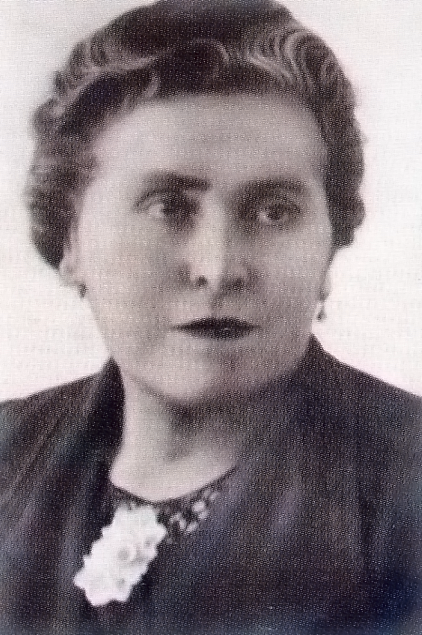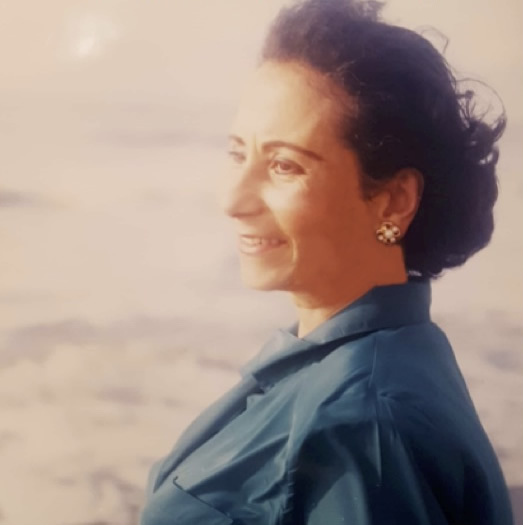Jorge Velasco Mackenzie is an Ecuadorian novelist, short story writer, poet, playwright and professor. He was born in Guayaquil on January 16, 1949. In 1983, Velasco Mackenzie published his first (and most famous) novel El rincón de los justos. In 1986 he won the “Grupo de Guayaquil” Award for his novel about the Afro-Ecuadorian people, Tambores para una canción perdida. 1996 he won first place in the IV Biennial of the Ecuadorian Novel with his historical novel En nombre de un amor imaginario.
Continue reading “Jorge Velasco Mackenzie”Author: richard
Andrés Ortiz Lemos
Andrés Ortiz Lemos is an Ecuadorian writer, sociologist, political analyst, literary critic and academic. His latest non fiction book, Crónicas del Socialismo del Siglo XXI (2019), co-written with Luis Espinosa Goded, is a libertarian analysis of how Ecuador’s socialist government has become increasingly divided as a result of corruption scandals and a collapsing economy. Ortiz Lemos currently teaches sociology and political science at the Political Science Department of the Central University of Ecuador.
Continue reading “Andrés Ortiz Lemos”Leonardo Valencia
Leonardo Valencia is an Ecuadorian novelist and short story writer. He was born in Guayaquil in 1969. He studied in Ecuador and Spain, where he obtained a degree in literary theory at the Autonomous University of Barcelona. He created the university’s writing program and ran it for several years. He currently lives in Quito where he teaches literature and creative writing at the Simon Bolivar Andean University. The literary critic Andrés Ortiz Lemos called Valencia’s latest novel, La escalera de Bramante (2019), “one of the most important novels written in the Spanish language in recent years.”
Continue reading “Leonardo Valencia”Humberto Vinueza
Humberto Vinueza Rodríguez was a writer and politician. He was born in Guayaquil in 1942 and died in Quito on March 15, 2017. During his lifetime, we published around 15 books, which earned him prestigious prizes such as the José Lezama Lima Prize (Cuba) and the Jorge Carrera Andrade Prize (Ecuador). He was part of the Tzantzismo literary movement of the 1960s Ecuador. In 1970 he published the book Un Gallinazo Cantor Bajo un sol de a perro. This book has been called a fundamental part of Ecuadorian poetry by writers such as Jorge Dávila Vázquez and Abdón Ubidia.
Continue reading “Humberto Vinueza”Jorge Luis Cáceres
Jorge Luis Cáceres is an Ecuadorian short story writer, editor and anthologist. He was born in 1982 in Quito. In 2013 he published a best-selling anthology titled No entren al 1408, a tribute to the “master of horror” Stephen King. The original edition of the book consisted of 22 Spanish-language horror stories by authors from various countries. Subsequent editions contained stories by authors of up to 30 countries, including Ecuador, Cuba, Argentina, Peru and Mexico. In 2012, he was recognized as one of “the 34 Latin American authors of unquestionable literary quality” at the Guadalajara International Book Fair.
Continue reading “Jorge Luis Cáceres”Carlos Arcos Cabrera
Carlos Arcos Cabrera (Quito, 1951) is an Ecuadorian sociologist and writer. He began his writing career with the novel “Un asunto de familia” in 1997, followed by “Vientos de agosto” in 2003 and “El invitado” in 2007, both of which won the Joaquin Gallegos Lara Prize in their respective years of publication. He has also written books for young people, including “Memorias de Andrés Chiliquinga” in 2013, which features the character Andrés Chiliquinga from Jorge Icaza’s 1934 novel “Huasipungo.”
Continue reading “Carlos Arcos Cabrera”Abdón Ubidia
Abdón Ubidia is a novelist, short story writer and playwright. He was born in Quito in 1944. He is considered one of the most important voices of modern Ecuadorian literature. In 1986 he published Sueño de lobos, which was hailed by critics as the book of the decade. It was translated into English in 1996 as Wolves’ Dream. In 2012, President Rafael Correa awarded Ubidia with the Eugenio Espejo Prize in Literature, Ecuador’s top literary prize. Ubidia’s books have been translated into many languages.
Continue reading “Abdón Ubidia”Sara Vanégas Coveña
Sara Vanégas Coveña (Cuenca, October 19, 1950) is an Ecuadorian poet, writer, and teacher. She received a scholarship to attend the Goethe Institute in Munich in 1971, where she earned a doctorate in Germanistics. She has taught at the University of Munich and Bielefeld University, and is currently a professor at the Universidad del Azuay in Cuenca. She has been recognized as a Universal Ambassador of Peace and as a corresponding member of the Asociación Prometeo de Poesía, an organization based in Madrid. Coveña is a two-time winner of the Jorge Carrera Andrade National Poetry Prize, receiving the award in both 2000 and 2004.
Continue reading “Sara Vanégas Coveña”Magaly Vanégas Coveña
Magaly Vanégas Coveña (Cuenca, 1953) is an Ecuadorian poet, short story writer, journalist, philologist and teacher. Following her studies at the University of Cuenca, she received a scholarship to study at the Pushkin State Russian Language Institute in the former Soviet Union, as well as at the Faculty of History and Philology at Moscow University. She has taught Spanish at Moscow University and Russian at Cuenca’s Ecuadorian-Soviet Cultural Institute. She is currently a teacher at the Manuel J. Calle National School in Cuenca. She is a member of the Ibero-American Poetry Academy in Cuenca. Her poems are known for their short verses and themes of absence, loneliness, nostalgia, and simple things in nature, for example: “A bird / has hung its nest / in the shadow / of a balcony” (from Espejos de la imaginación, 2000).
Continue reading “Magaly Vanégas Coveña”María del Carmen Garcés
María del Carmen Garcés is a writer, translator, journalist and historian. She was born in Latacunga in 1958. She has lived in Bolivia, Argentina, United States, Cuba and Chile. One of her best known books is Conversaciones con Pombo: Combatiente de la guerrilla del Che en Bolivia (2011), about her conversations with Harry Villegas Tamayo, aka Pombo, a guerilla fighter who accompanied the revolutionary Che Guevara in Bolivia.
Continue reading “María del Carmen Garcés”Remigio Crespo Toral
Remigio Crespo Toral was an Ecuadorian poet and writer. He was born in Cuenca on August 4, 1860 and died In the same city on July 8, 1939. In 1905, President Leónidas Plaza Gutiérrez appointed him lawyer of the Republic, to defend Ecuador in its diplomatic conflict with Peru. In 1909, in the centennial of the first cry of independence, Crespo Toral published a book titled Cien años de emancipación. In 1917, he was crowned national poet, by decree of the President Alfredo Baquerizo Moreno, in the Central Park of Cuenca. This was a very important ceremony, which was attended by the entire city, including senior officials like President Baquerizo Moreno, the Ambassadors of the United States, Belgium, Chile, Peru, among others. In 1925, he was appointed Rector of the University of Cuenca, holding this post until his death.
Continue reading “Remigio Crespo Toral”Mary Corylé
María Ramona Cordero y León (pen name Mary Corylé) was an Ecuadorian poet, journalist, playwright, researcher and teacher. She was born in Cuenca on May 21, 1894 and died in the same city on May 7, 1976. She wrote many poems, lyrics for hymns and pasillos (traditional music of Ecuador), and also wrote plays. Among her many accomplishments, she founded the Municipal Library of Cuenca. Before her death, she donated all her works to the Remigio Crespo Toral Museum in Cuenca. Among Corylé‘s most famous poems is Bésame (1925), which critics consider one of the most erotic Ecuadorian poems of the early 2oth century.
Continue reading “Mary Corylé”Carmen Acevedo Vega
Carmen Acevedo Vega de Idrobo (Guayaquil, July 16, 1913 – Guayaquil, April 28, 2006) was an eminent Ecuadorian poet, writer, and journalist whose literary career spanned several decades. Known for her profound and lyrical verses, Vega delved into themes of social justice, womanhood, and the human condition, making significant contributions to Ecuadorian literature and culture. Through her work in journalism and membership in various cultural and journalistic institutions, she played a pivotal role in the cultural landscape of Ecuador. Vega’s dedication to exploring complex social themes and her involvement in literary and cultural circles have cemented her legacy as a key figure in Ecuadorian literature.
Continue reading “Carmen Acevedo Vega”María Angélica Idrobo
María Angélica Idrobo (July 29, 1890 – February 26, 1956) was a prominent Ecuadorian educator, writer, and pioneering women’s rights activist. Educated in Quito and further trained in Argentina and Uruguay, she excelled in pedagogy, founding notable institutions like Liceo Ariel, Fernández Madrid, and Simón Bolívar. Alongside Zoila Ugarte, Idrobo established the “Sociedad Feminista Luz de Pichincha,” advocating for women’s empowerment. She also created schools for women, significantly contributing to female education. Her literary work, including “Homenaje a las Madres,” reflects her deep commitment to social issues. Idrobo’s enduring legacy continues to inspire in Ecuador’s cultural and educational spheres.
Continue reading “María Angélica Idrobo”Luz Argentina Chiriboga
Luz Argentina Chiriboga Guerrero is an Afro-Ecuadorian poet, novelist and short story writer. She was born in Esmeraldas on April 1, 1940. Her works are concerned with Afro-Hispanic cultural identity and themes about women’s challenges. She is a member of the House of Ecuadorian Culture. Several of her novels have been translated into English, Italian and French.
Continue reading “Luz Argentina Chiriboga”
